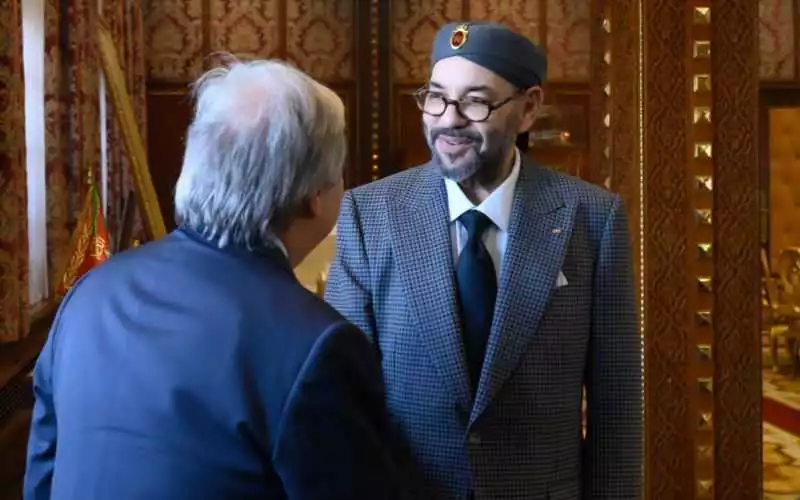Moroccan King Mohammed VI’s 25-Year Reign: Resilience and Adaptation in the Face of Regional Challenges

In an analysis, François Soudan, editor-in-chief of the magazine Jeune Afrique, dissected the reign of Mohammed VI, highlighting the determination, clear vision and common sense of the Moroccan monarch who has been able to adapt to the demands of the moment.
"The time of Morocco has never been that of the rest of the world, even more so under Mohammed VI [...] to reign is to last by adapting to circumstances, the important thing being not to falter when it comes to acting," analyzes François Soudan in an editorial titled "Mohammed VI: 60 years and as many secrets". The journalist evokes the "determination" of King Mohammed VI "in the face of the declared hostility of Algeria, the muted reluctance of France and the recurring criticisms of European media and NGOs", underlining the commitment of the monarch "on the path of Morocco First", a state of mind which according to him "participates in the mystery of the power" of the Moroccan sovereign.
The editorialist considers that Mohammed VI has "an undeniable advantage" over other heads of state, in the sense that "he therefore owes nothing to others, which prevents him from feeling indebted to anyone." "If he inherited the throne twenty-four years ago from his father, he had to, like every king before him, conquer it in the heart of the Moroccan people, for it is there that the foundation and the most solid guarantee of his power reside," he observes, stressing that the success of the major reforms carried out by Mohammed VI is justified by the strong union and communion of thought between the sovereign and the Moroccan people.
In Morocco, "power is also a matter of pedagogy, and it is by making the king that Mohammed VI is ultimately the simplest and closest to his people," insists François Soudan, also noting that Islam and the quality of Commander of the Faithful of the sovereign are "at the heart of his legitimacy", but also "a formidable agent of social stability, an auxiliary of popular education, a cement of the throne and an essential component of Moroccanness."
The editorialist of Jeune Afrique also criticizes the recent investigations carried out by "Londoners from The Economist and The Times" on the supposed "disappearance" of the king and the alleged influence of a family of kickboxers on the monarch, claiming that it is a compilation of rumors. "The authors of these investigations themselves acknowledge it: for lack of access to the Palace, they worked on the basis of rumors and anonymous second-hand sources..." he writes. And to add: "We can certainly find extenuating circumstances for these foreign journalists in search of buzz [...] they are reduced to interpreting fantasies. Never has the incomprehension of the codes of the Alaouite monarchy been so acute."
Related Articles
-

Maersk Abandons Algeciras: Geopolitical Tensions and EU Emissions Rules Reshape Mediterranean Shipping
15 August 2025
-

Moroccan Expat’s Dream Investment Turns Nightmare: 10-Day Demolition Ultimatum Shocks Returning Entrepreneur
15 August 2025
-

Morocco’s New Tax Rules Shake Up Joint Property Ownership: What Co-Owners Need to Know
15 August 2025
-

Morocco Unveils Tax-Free Shopping for Tourists: 2,000 Dirham Threshold Unlocks VAT Refunds
15 August 2025
-

Ourika Valley Scandal: Tourists Charged Extortionate Fees for Public Riverbank Access
15 August 2025